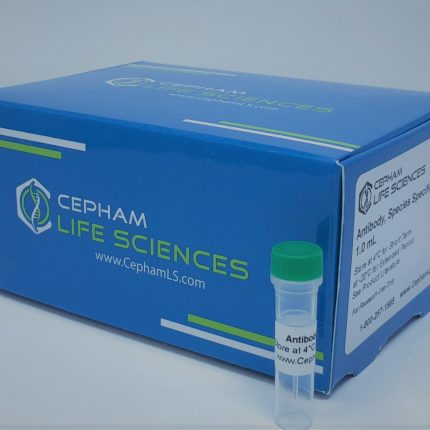Aliases
FLJ40509; I-kappa-B kinase; IKBKB; kinase beta; NFKBIKB
Antibody Type
Polyclonal Antibody
Uniprot ID
Swiss-Prot#: O15111/O14920;
NCBI Gene#: 1147;
Immunogen
Peptide sequence around phosphorylation site of serine 176/177 (Q-G-S(p)-L-C) derived from Human IKK-alpha/beta.
Raised In
Rabbit
Species Reactivity
Human Mouse Rat
Tested Applications
WB Recommended dilution: Western blotting: 1:500~1:1000
Background / Function
Acts as part of the IKK complex in the conventional pathway of NF-kappa-B activation and phosphorylates inhibitors of NF-kappa-B thus leading to the dissociation of the inhibitor/NF-kappa-B complex and ultimately the degradation of the inhibitor. As part of the non-canonical pathway of NF-kappa-B activation, the MAP3K14-activated CHUK/IKKA homodimer phosphorylates NFKB2/p100 associated with RelB, inducing its proteolytic processing to NFKB2/p52 and the formation of NF-kappa-B RelB-p52 complexes. Also phosphorylates NCOA3. Chandrakesan P, et al. (2010)J Biol Chem 285, 33485-98Hinz M, et al. (2010 Mol Cell 40, 63-74 Choudhary S, Lu M, Cui R, Brasier AR (2007)Mol Endocrinol 21, 2203-17
Conjugate
Unconjugated
Storage Buffer
Rabbit IgG in phosphate buffered saline (without Mg2+ and Ca2+), pH 7.4, 150mM NaCl, 0.02% sodium azide and 50% glycerol.
Form
liquid
Storage
Shipped at 4°C. Upon delivery aliquot and store at -20°C or -80°C. Avoid repeated freeze.
Purity
Antibodies were produced by immunizing rabbits with synthetic phosphopeptide and KLH conjugates. Antibodies were purified by affinity-chromatography using epitope-specific phosphopeptide. Non-phospho specific antibodies were removed by chromatogramphy using non-phosphopeptide.
Modification
Phospho-Ser176/177







